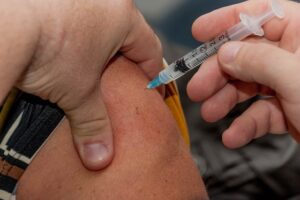Are incentives necessary to promote vaccination?
“The best things in life are free”, or so the saying goes. Sounds appropriate if the best chance at seeing an end to the Covid-19 pandemic is through vaccination. Who wouldn’t jump at the chance for life to return to normal? The fact that Covid-19 vaccines are free for anyone wanting added protection against a potentially lethal virus should be incentive enough.
As more Ontarians roll up their sleeves to get vaccinated, the province is within reach of meeting a target where at least 80% of eligible citizens are vaccinated. According to the Covid-19 Vaccination Tracker (July 13), 78.7% of people aged 12+ in Ontario have received at least one dose, 55.1% are considered fully vaccinated.
The availability of supply has become less of on issue as Canada is on track to receive 68 million doses by the end of July. With more supply on hand, several clinics are offering the flexibility of walk-in opportunities to get the shot. Some have even “sweetened the deal” by offering incentives like gift cards.
For individuals reluctant to get vaccinated, financial incentives might be the motivating factor in getting that first dose. Two Canadian provinces, Alberta and Manitoba initiated Covid-19 vaccine lotteries to help boost vaccination rates within their jurisdiction.
Ontario has decided not to use incentives or a lottery-based solution to boost the vaccination rates among citizens. However, some companies are taking a different approach and offering cash incentives to increase vaccination rates among employees.
For instance, some organizations, like Toronto’s Carpenters’ Union Local 27, Commercial Division, have initiated a cash incentive strategy to encourage vaccination among its 3,500+ members. Mike Yorke, President of the Carpenters’ District Council of Ontario explained that members who meet the requirements and provide proof of complete vaccination by the end of 2021 will be paid $450 through the benefit plan.
The construction industry is a main driver for economic growth. Providing a healthy and safe environment for workers in the sector is crucial to a post-pandemic recovery. Yorke said the decision to implement a strategy to incentivize vaccination among eligible members was made to help encourage “quick and efficient” vaccine coverage among the workforce.
Vaccination is another measure which helps “ensure the health and safety of employees on the jobsite, helps protect their co-workers, their families and the community”, he reiterated.
As well intentioned as the incentive approach seems, it can be rather complex. Equity and accessibility factors are important elements to address when considering implementing incentive strategies. The potential exists to discriminate against those who for whatever reasons, (medical, religious, etc.), choose to decline vaccination.
According to Yorke, member feedback from the incentive strategy has been positive thus far.
Photo credit: pixabay.com



